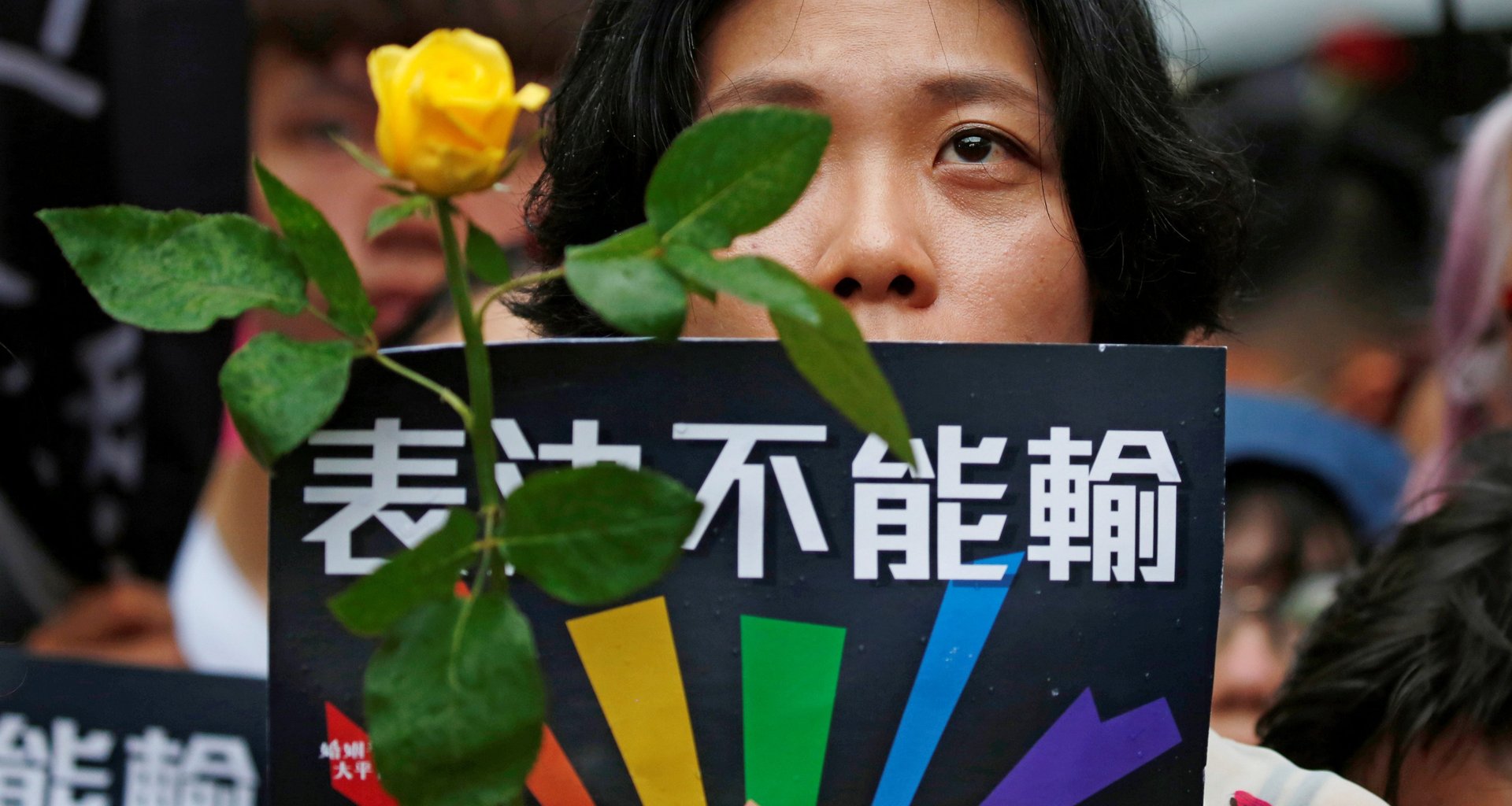In a first for Asia, Taiwan legalized same-sex marriage—with caveats
After more than two years of protests and political wrangling, Taiwan’s parliament has finally passed a law to legalize same-sex marriage, the first country in Asia to do so.


After more than two years of protests and political wrangling, Taiwan’s parliament has finally passed a law to legalize same-sex marriage, the first country in Asia to do so.
The decision by Taiwan’s Legislative Yuan today (May 17) comes one week before a deadline imposed by Taiwan’s constitutional court two years ago, which said that excluding same-sex couples from marriage was unconstitutional. The court ruled at the time that the legislature must pass laws allowing same-sex marriage by May 24, 2019, or they would automatically become law. The ruling falls on the International Day Against Homophobia, Transphobia and Biphobia.
Thousands of supporters of same-sex marriage waited outside the legislature in Taipei in the rain for the decision. The ruling was less than the full equality that people in the LGBT community and their allies had hoped for, following what has been a bruising and divisive fight.
Though Taiwan is widely regarded as the most progressive place in Asia for gay rights—the closest country in the region that has legalized gay marriage is Australia—conservative groups have long tried to pressure legislators to pass a law that does not grant same-sex unions equal rights to heterosexual ones. The opposition was emboldened by a November referendum result that saw a majority of voters agree that marriage should be restricted to being between a man and a woman.
The bill allows same-sex couples to form “exclusive permanent unions” and to register for marriage at government offices. However, the word “same-sex marriage” was dropped from its language yesterday, replaced with convoluted phrasing involving “two persons of the same gender” creating a “permanent union,” due to pressure from some more conservative members in the ruling party, Taiwanese news agency CNA reported (link in Chinese).
The bill also stops short of granting full adoption rights to same-sex couples, allowing only one partner to adopt the biological children of the other. Gay couples are also allowed to marry under the establishment of a separate law. Rights activists would have preferred for the current law to be revised to redefine marriage.
Same-sex couples will be able to get married in Taiwan starting on May 24.
Though Taiwanese president Tsai Ing-wen tweeted her support ahead of today’s vote for marriage equality, many have criticized her and the ruling Democratic Progressive Party for not proactively enacting legislation, for fear of alienating voters. Critics allege that that inertia provided an opportunity for groups in Taiwan opposed to marriage equality to whip up anti-LGBT sentiment in Taiwan as part of their campaigning for the November referenda, for example through the dissemination of misinformation on social media.
Taiwan’s government was quick to highlight today’s achievements as a contrast to China, where human rights have regressed under the leadership of Xi Jinping.
Chinese authorities have in recent months tightened control over LGBT communities online, scrubbed homosexual content from Bohemian Rhapsody, and censored online content that falls outside of what is calls “correct marriage views and ethics.” China’s LGBT community will continue looking to Taiwan for hope that one day they too might be accorded the same rights.